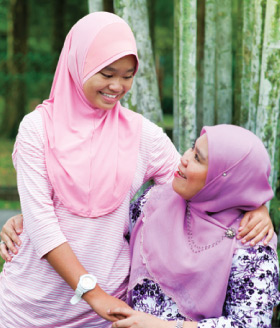The World Health Organisation (WHO) defines teenage pregnancy as a ‘teenaged or underaged girl (within the ages of 15–19) becoming pregnant.’ However, the term teenage pregnancy is often used in our society to mean unmarried adolescent girls who become pregnant. In many cultures and communities including Malaysia, this carries a social stigma.
Pregnant teenagers also face many additional obstetric, medical & social issues compared to women who give birth in their 20’s and 30’s.
- Complications during pregnancy and delivery are the leading causes of death for girls aged 15- 19 in developing countries; they are twice as likely to die in childbirth as women in their twenties.
- 25% more likely to have a low birth weight baby, which may lead to lower intelligence and reduced academic performance at school.
- high risk for acquiring sexually transmitted infections
- anaemia and pregnancy-induced hypertension
Moreover, children born to parents who aren’t mentally, emotionally and economically prepared face the risk of abuse, neglect, and failure at school. These children are also more likely to engage in criminal behaviour later in life.
The Ministry of Health (MOH) Malaysia, in 2011 recorded in its facilities 18,652 births by girls between the ages of 19 out of which more than 30% were unmarried. Factors that may contribute to this problem are:
- Lack of education and information about reproductive and sexual health
- Lack of knowledge on ways to prevent pregnancy
- Adolescent sexual behaviour or curiosity
- Socio-economic factors (i.e. poverty, lack of familial support/guidance)
- Certain customs and traditions.

Parent’s Role
Parents are the number one most influential figure for most children. However, many parents lack the knowledge to guide their children through this phase. Parents need to equip themselves with the appropriate parenting skills:
- Be an approachable parent, ensure your child is comfortable talking to you, be it to express feelings, share opinions or just ask questions.
- Establish rules (i.e. dating rules), curfews, and standards of expected behaviour, preferably through an open process of family discussion and respectful communication.
- Explain the values, be it cultural or religious, that you have towards teenage pregnancy. It’s important to give your teen freedom, but similarly important is to ensure they know not to overstep their boundaries.
- Strive for a relationship with your teen that is affectionate, firm in discipline, and rich in communication and one that emphasizes mutual trust and respect.
- Help them plan for the future. The chances that your son or daughter will go on with sex, pregnancy, and parenthood are significantly reduced if they have a professional ambition they’d wish to pursue.
Although the main focus is on preventing teenage pregnancies, where they do occur, parent’s support is still crucial. Unmarried teenage mothers should not be made to feel isolated nor should they be shunned from the society, more so from one’s own family. The well-being of the mother and her innocent child should be the foremost priority.
You and your teenager can reach out to counsellors, community leaders, religious counsellors, NGOs, welfare agencies, government bodies, or even other family members that you think might be able to help.
The PEKERTI Policy
An educational contribution by National Population and Family Development Board Malaysia.






Comments